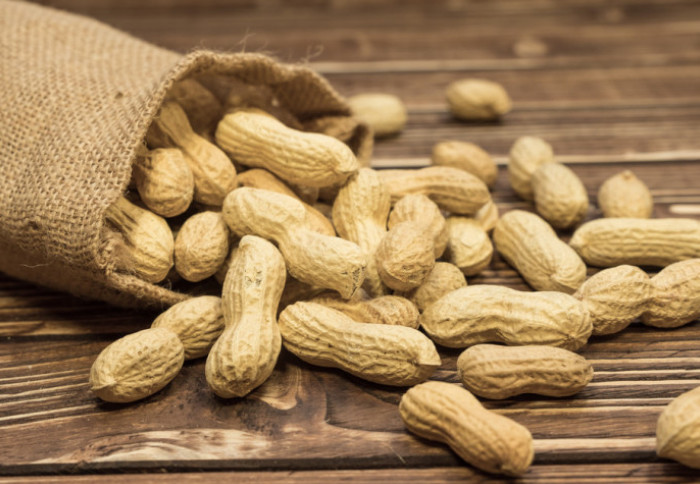First study of a new immunotherapy treatment for peanut allergy launches
by Ellyw Evans

The study will compare immunotherapy using boiled peanut to conventional treatments with roasted peanut in desensitising children with peanut allergy.
A new study, the first of its kind, is comparing whether oral immunotherapy (OIT) using hypoallergenic, boiled peanut is as effective at treating peanut allergy as more conventional approaches which use roasted peanut flour.
The BOPI-2 study, at Imperial College London, has been funded by the charity Action Medical Research and the Medical Research Council. The treatment uses oral immunotherapy, a process that involves the gradual introduction of very small but increasing amounts of a food allergen to induce desensitisation in peanut-allergic children and young people.
The aim is to re-train the body so that it does not react to peanut, allowing people with peanut allergy to lead more normal lives. While desensitisation is not a cure, evidence suggests that it could reduce the risk of severe allergic reactions in the future.
Peanut allergy affects at least one in 50 children in the UK. It is the commonest cause of anaphylaxis, a potentially life-threatening allergic reaction, in young people in the UK. Affected individuals are advised to avoid foods containing peanut, but this can be difficult in practice and accidental reactions are common – occurring in 7-14% of peanut-allergic people each year. While fatal reactions are fortunately rare, hospital admissions for food-related anaphylaxis have increased by 5.7% per annum since 1998, with the largest increase seen in children.
The fear of having a severe accidental reaction has a major impact on the quality of life of patients and those caring for them, and led to the recent approval of a product based on roasted peanut flour for the treatment of peanut-allergic children in the UK. However, this treatment in only effective in up to 60% of children, and most will experience allergic reactions while on treatment. Initial data indicates that immunotherapy with boiled peanut may be cheaper, as effective, and with a more favourable safety profile.
Dr Sharanya Nagendran, Research Fellow at Imperial's National Heart and Lung Institute, comments: “It is really hard for families and caregivers to make sure that a child with peanut allergy avoids eating peanut, and accidental reactions are common. The BOPI-2 study is the first to directly compare conventional oral immunotherapy to hypoallergenic boiled peanut, allowing treated children to lead more normal lives without fear of a severe reaction.”
More than one hundred young people aged between the age of six and 18 will participate in the study. During the study, the researchers will look for changes in the immune response during and after treatment, which they hope will lead to new ways to predict who is most likely to benefit from oral immunotherapy.
Sarah Moss, Communications Director, Action Medical Research says: We are committed to funding treatments that improve the health and lives of children. As a research charity focusing on children, we understand the importance of ongoing research to find new treatments for people, including children who live with potentially life threatening peanut allergies.”
This news story was adapted from a press release by Action Medical Research for Children.
Article text (excluding photos or graphics) © Imperial College London.
Photos and graphics subject to third party copyright used with permission or © Imperial College London.
Reporter
Ellyw Evans
Faculty of Medicine Centre